Ather Energy drives its expansion plans at a new 1,23,000 sq.ft EV factory in Tamil Nadu
TechRadar India gets a guided tour
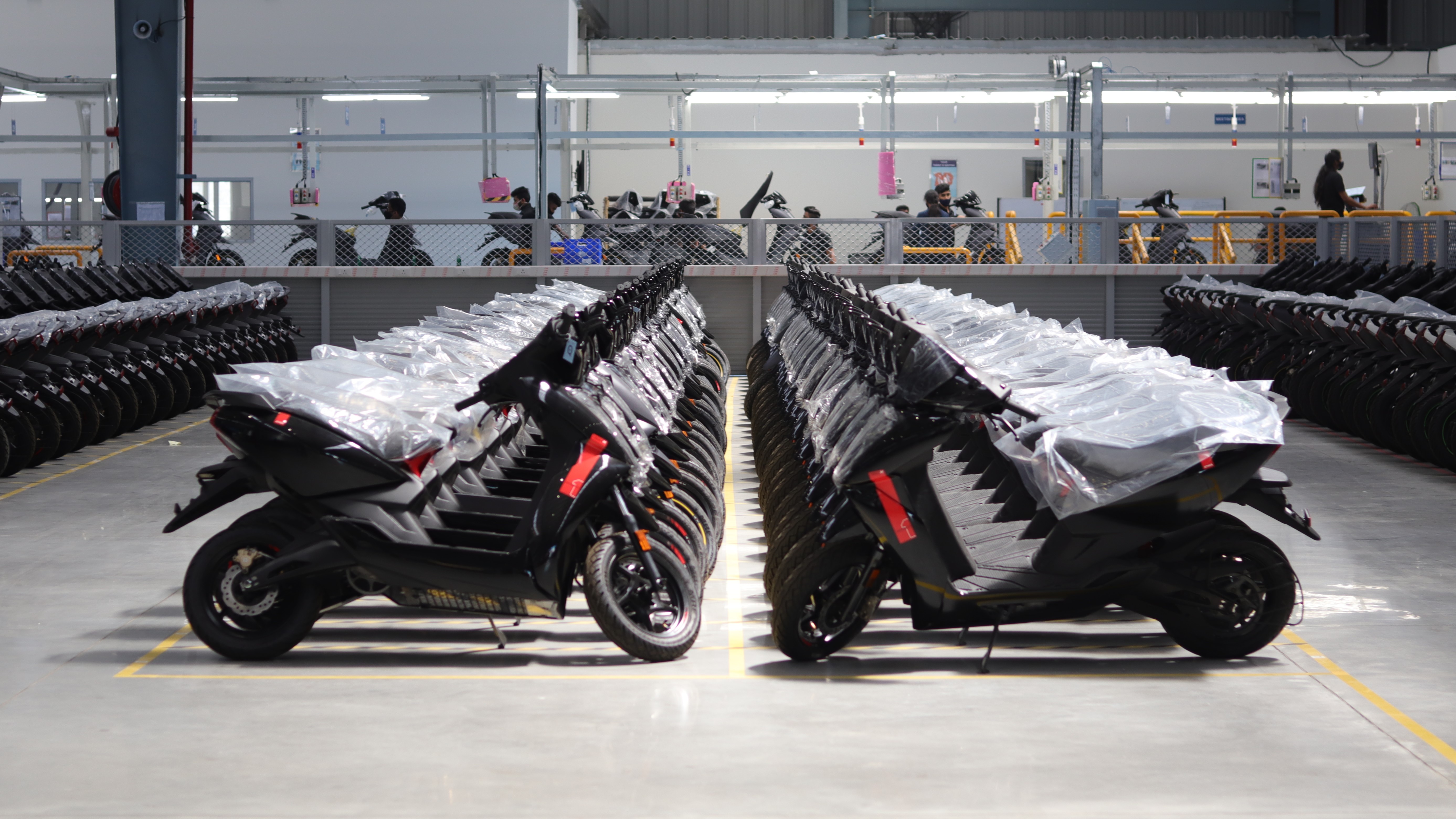
The Ather 450X electric scooter will soon be available in 27 cities across the country. To cater to the emerging demand, the company has just moved its manufacturing to a new facility in Hosur, Tamil Nadu. Here’s everything you need to know about it.
Before the facility in Hosur opened earlier this year, all of Ather’s scooters were made at a smaller facility at Whitefield in Bangalore --- not too far from its corporate office. The production ramp had been extraordinary: 750 units a month in 2019, 1,750 units in 2020, to a whopping 9,200 units at this new factory. That’s quite an increment over the 9 days it took to build the first-ever scooter.
The plant is also a great example of Make in India, as 90% of the production is now localised. The only component that remains entirely dependent on imports is the cells. Considering that India has close to no major lithium reserves, and a lithium-ion cell production plant generally calls for investments upwards of $1 billion, it will be a while for this last bit to be done locally.
- Ather 450X review: everything you need to know before buying
- How Ather Energy uses data to design a better electric vehicle
Growing up
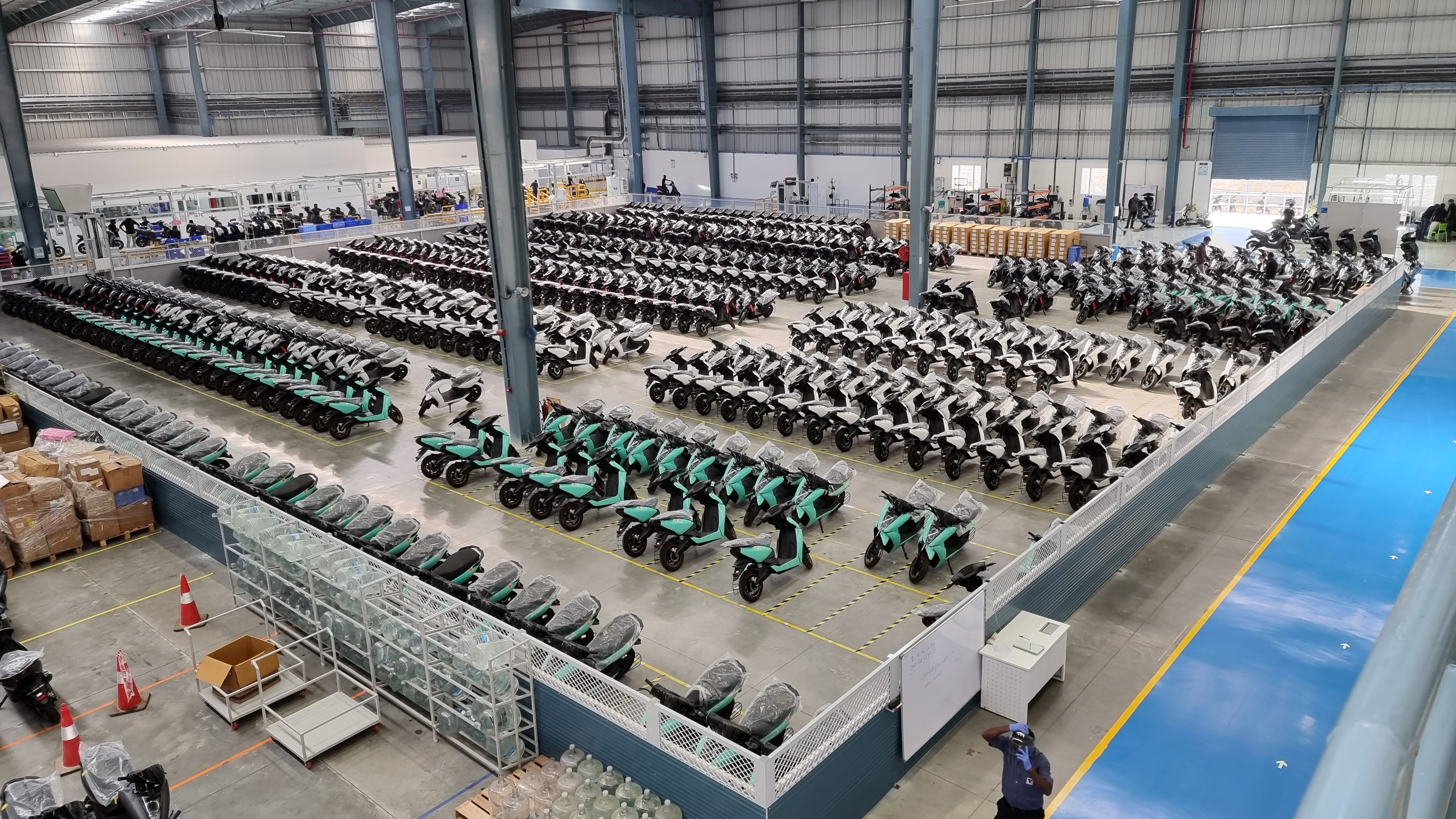
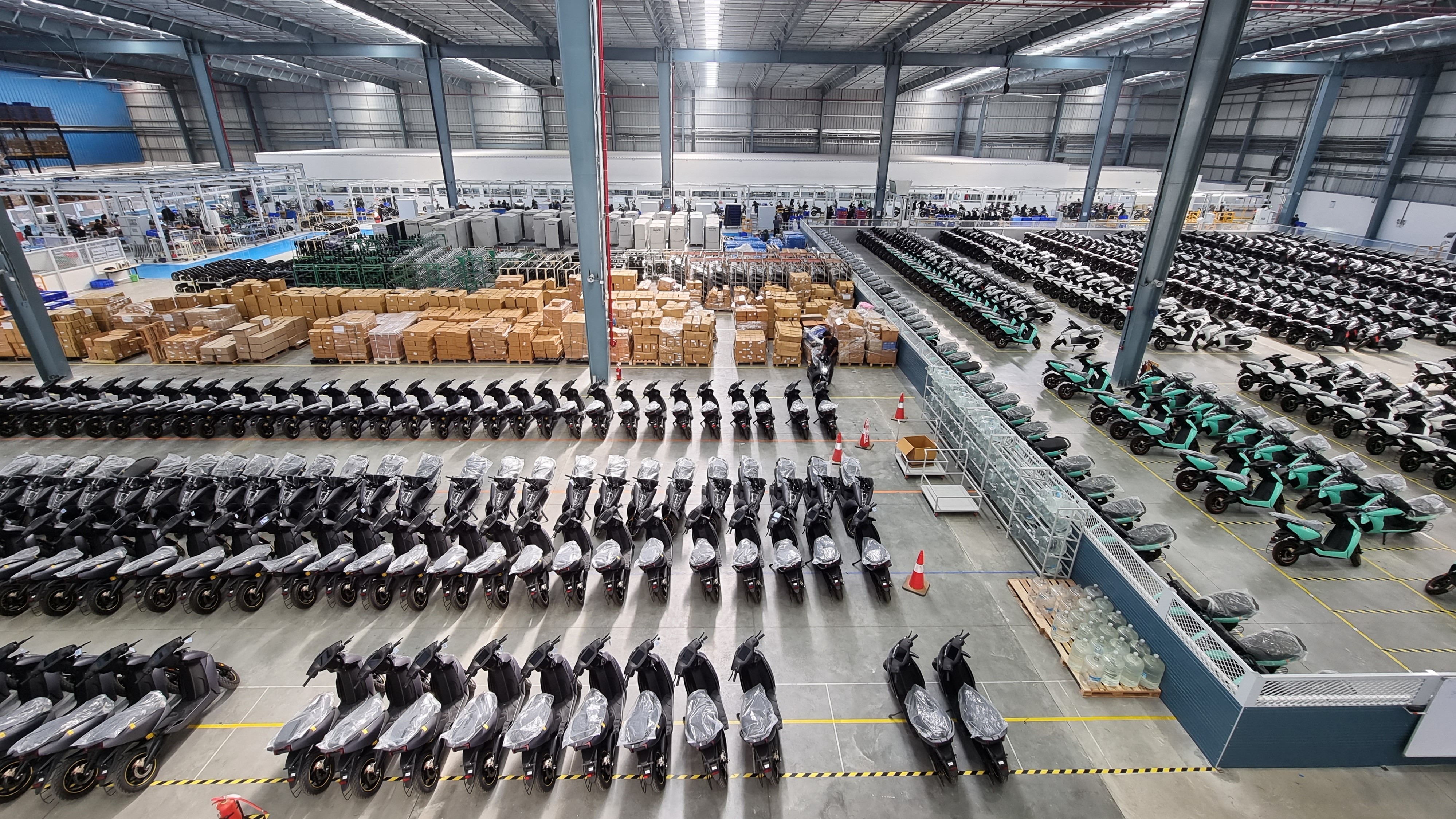
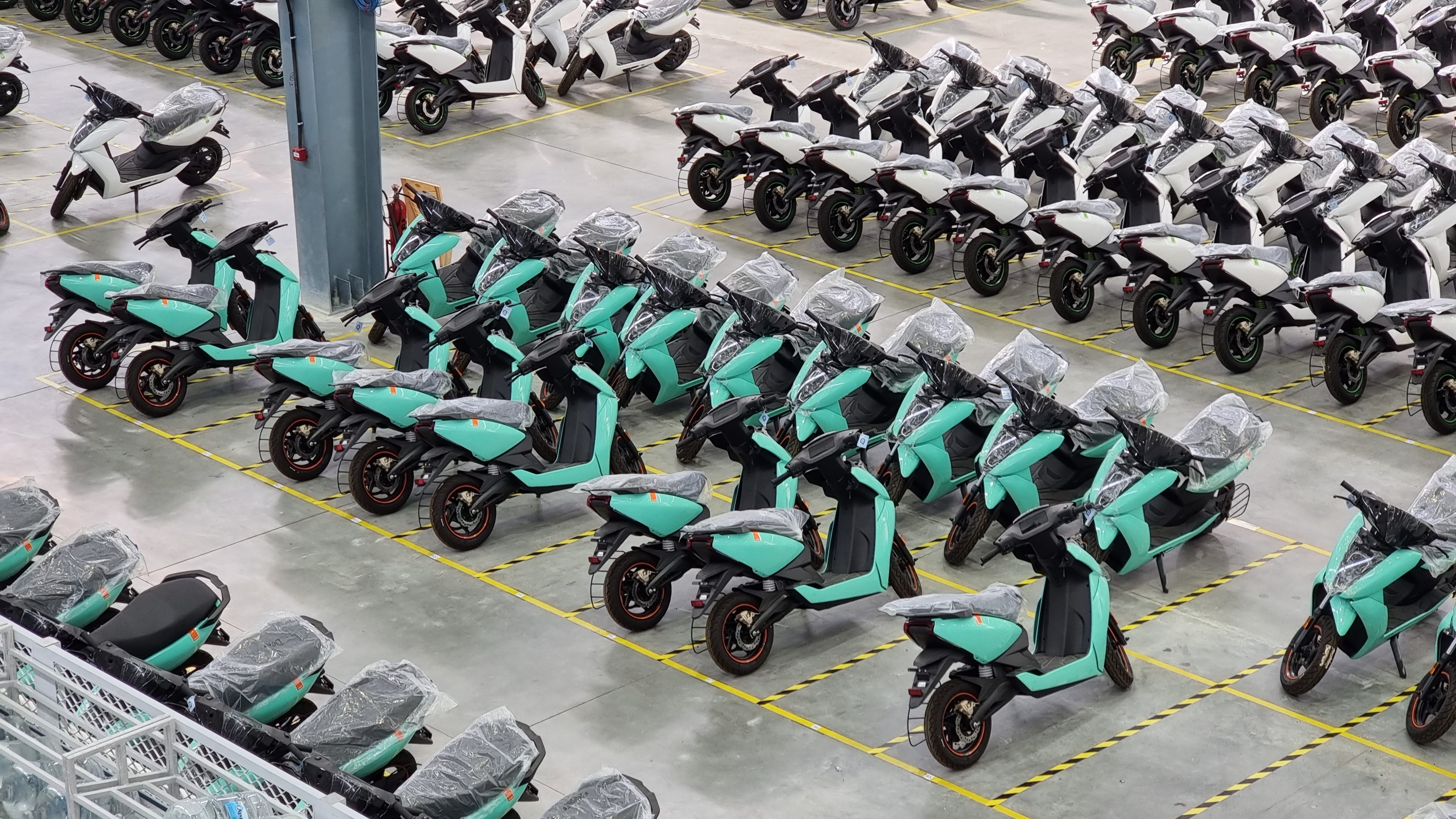
The plant took 9 months to complete, amid the pandemic.
Ather’s factory in Hosur currently has a capacity of 1,10,000 electric scooters a year, and 1,20,000 battery packs. Spanning 1,23,000 sq. ft, it cost Rs 130 crores. Adjoining it is another facility spanning 2,30,000 sq.ft, to which Ather has first rights to and if things go well, the plan is to utilize it for the company’s phase 2 expansion two years from now.
The plant's location in Hosur is a well-thought-out choice, given its proximity to the company's headquarters next door in Bangalore. Additionally, Hosur in Tamil Nadu provides governmental support under the state's EV policy, besides being located in an industrial belt, that provides adequate scope for future expansion. What's more, the industrial township, which has a common border with Bangalore, is where most of Ather's suppliers are located.
The facility has zero effluents and emissions, unlike traditional automakers who have a high dependence on water sources. While authorised recyclers manage e-waste in the location, air pollution is non-existent. The company has also implemented a new energy regenerative testing method to reduce power consumption.
Since all battery packs go through a couple of charge cycles as part of their quality check, a fair bit of power is consumed. To increase its efficiency, when the batteries are discharged, the power is pumped back into the grid to use for other purposes. To date, it has installed over 360 kWh of batteries.
Get daily insight, inspiration and deals in your inbox
Sign up for breaking news, reviews, opinion, top tech deals, and more.
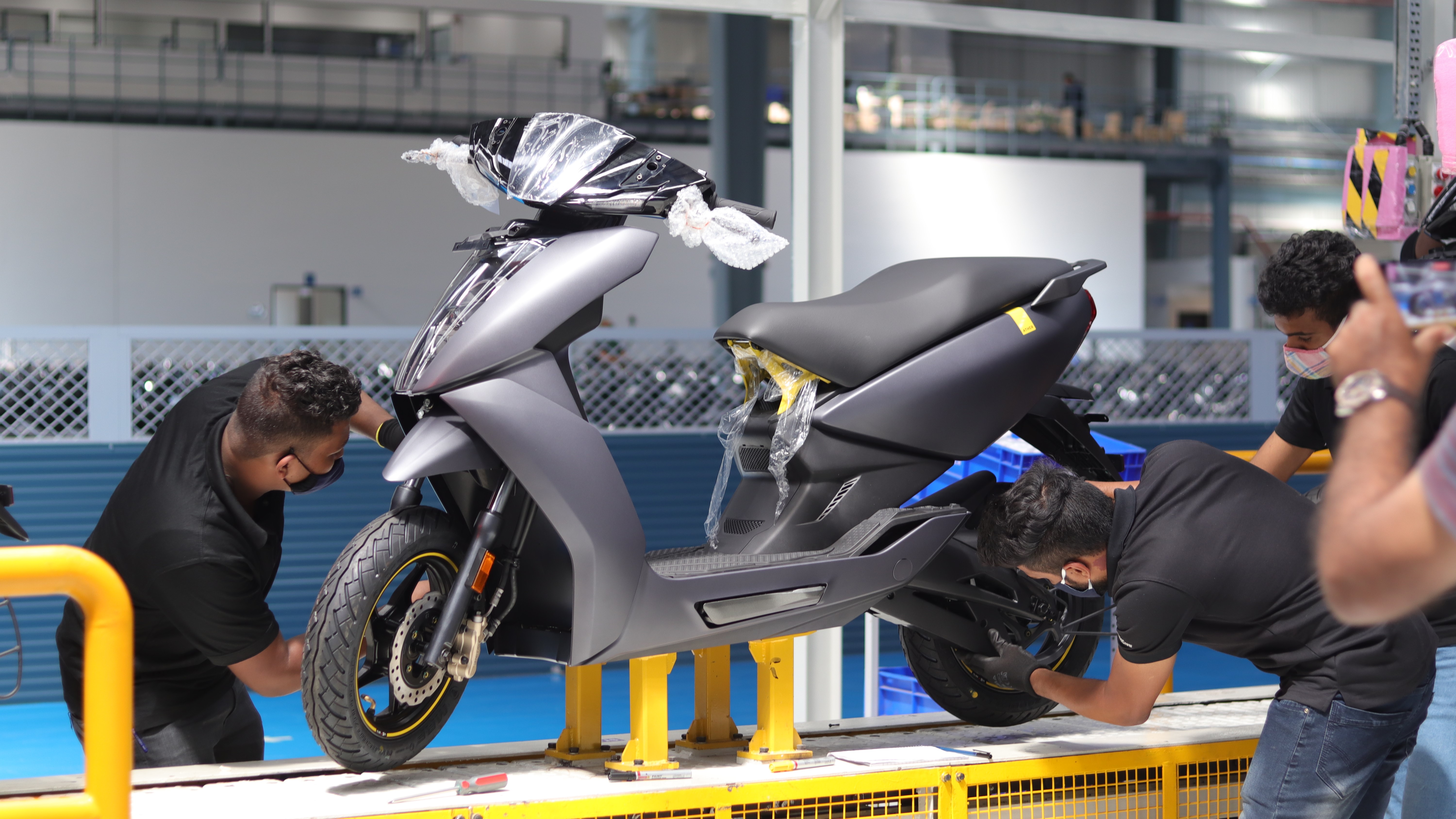
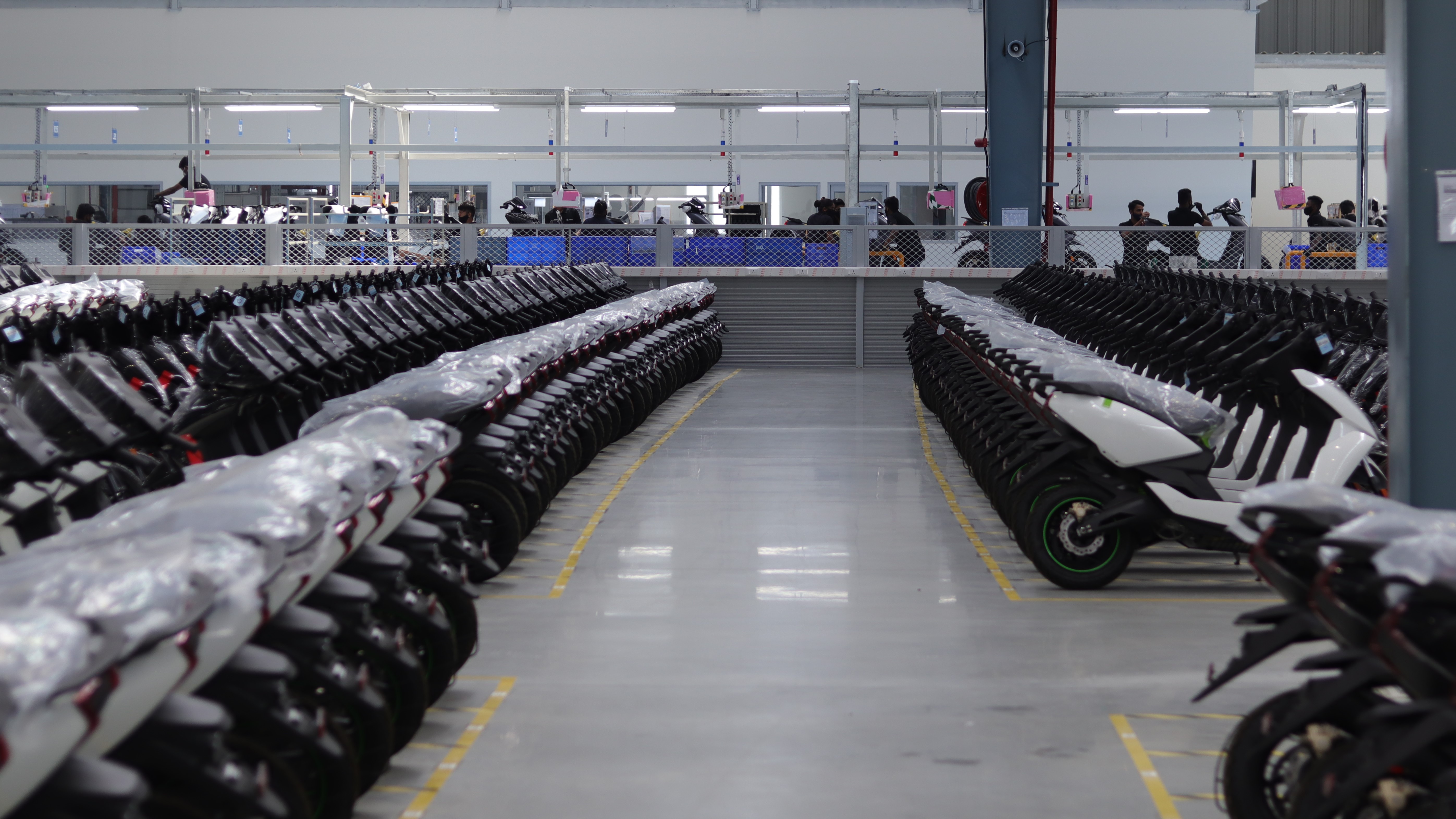
The path ahead
With higher economies of scale, better efficiencies and strong demand, Ather Energy is finally breaking even. In the best-case scenario, it will achieve a positive EBITDA by early next year. Over the next five years, it targets an investment of Rs 635 crores to foster growth; but that is likely to call for another round of funding.
While the company has confirmed its presence in 27 cities across 15 states, By the end of 2021 it hopes to nudge this number closer to 40. This could be considered a slow pace, but one needs to juxtapose the fact that each expansion also includes the setting up an experience centre that acts as a hub for sales and community work.
While the ones in Bangalore and Chennai are company-owned, the new ones could be around the franchisee model that helps bring local expertise. The ECs in Mumbai and Ahmedabad are already operational, with Hyderabad, Kochi, Pune, Hubli, Jaipur, Kolkata and Delhi NCR being next in the pipeline. More than 13,000 entities have expressed interest in owning an Ather dealership.
“The scale at which we’re looking to expand would’ve killed the company”, explained Tarun Mehta, the CEO of Ather Energy. When asked whether B2B sales will be an area of focus eventually, he shot down that thought saying “It’s not a market we understand.”
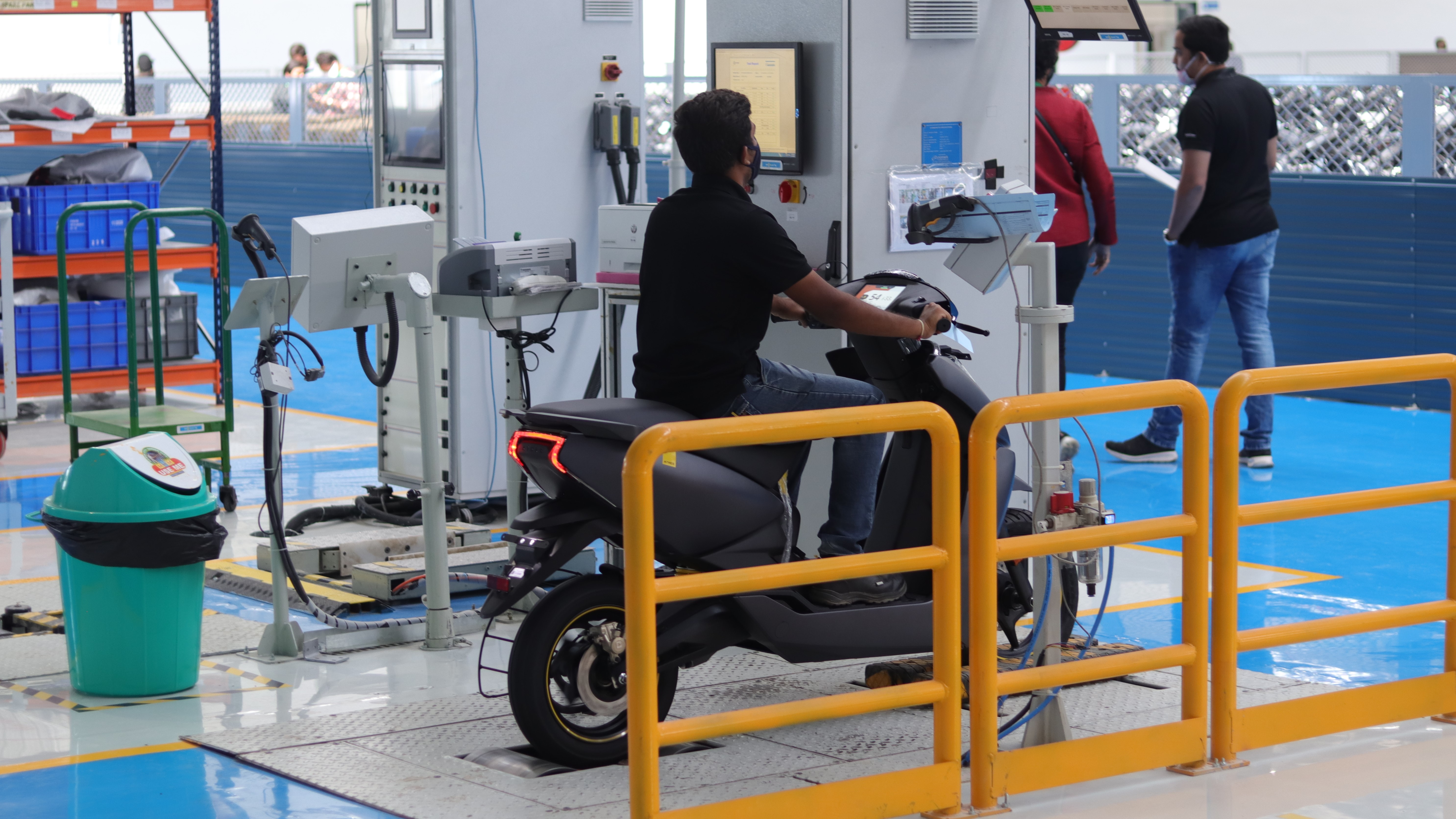
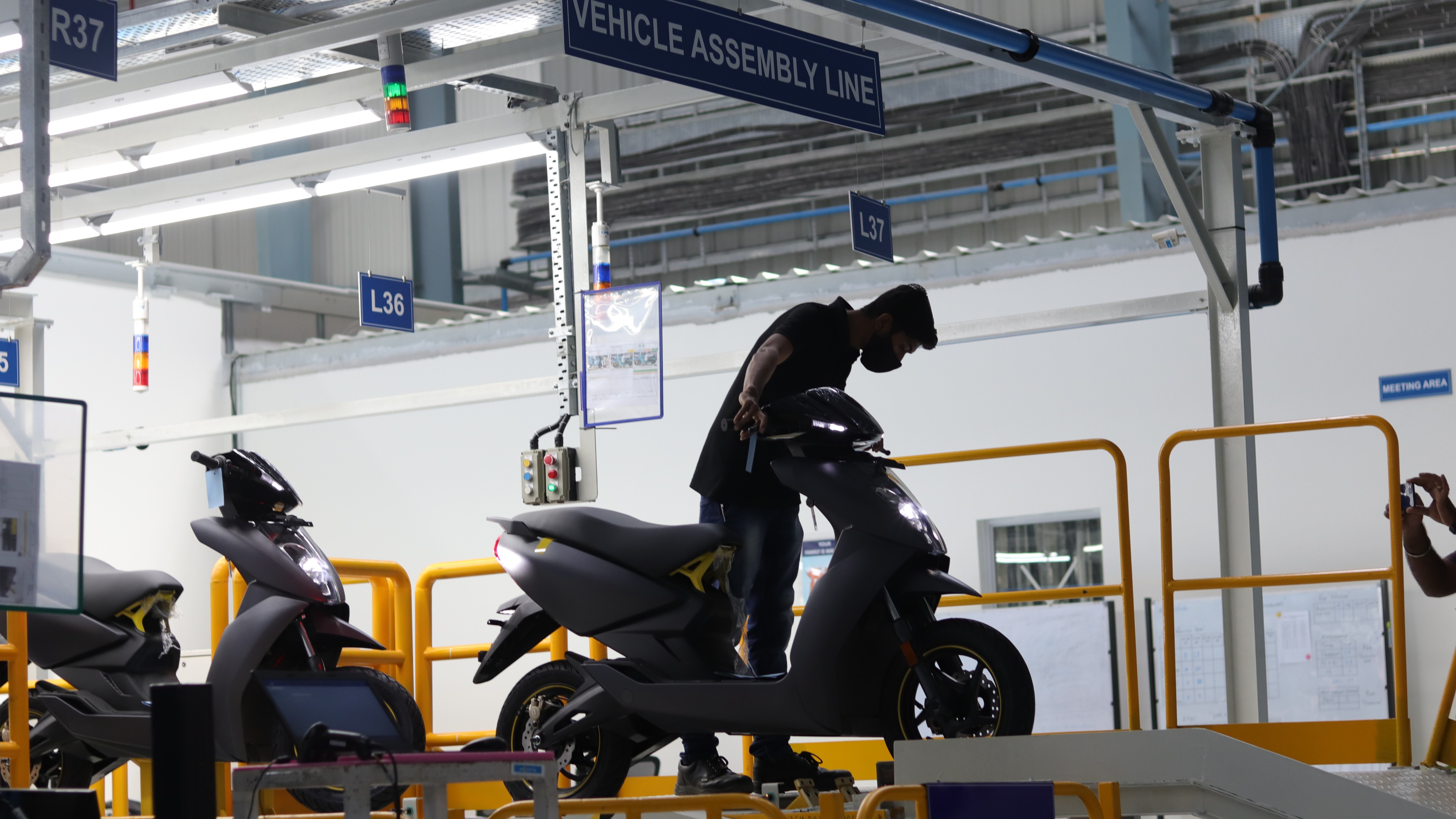
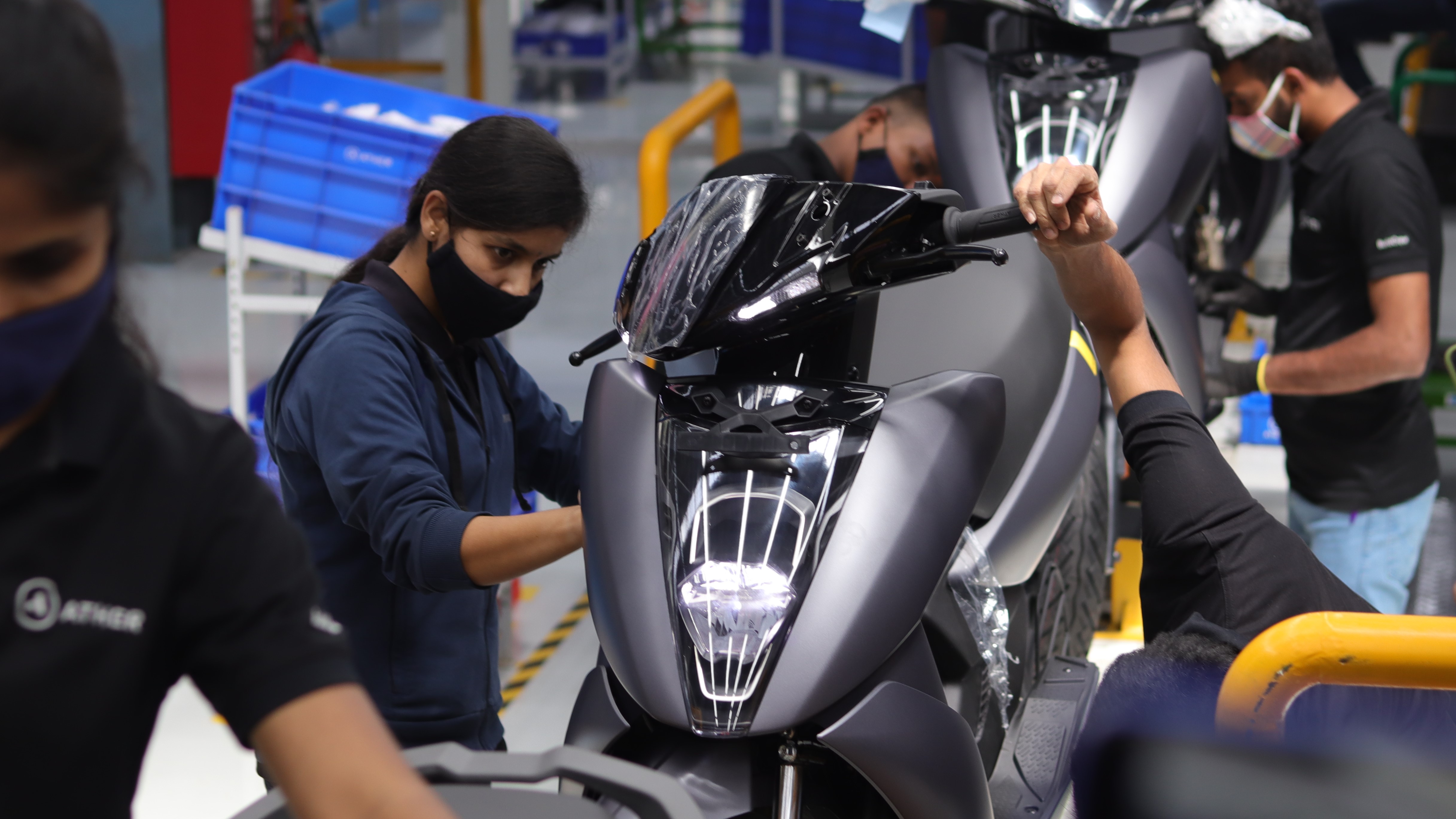
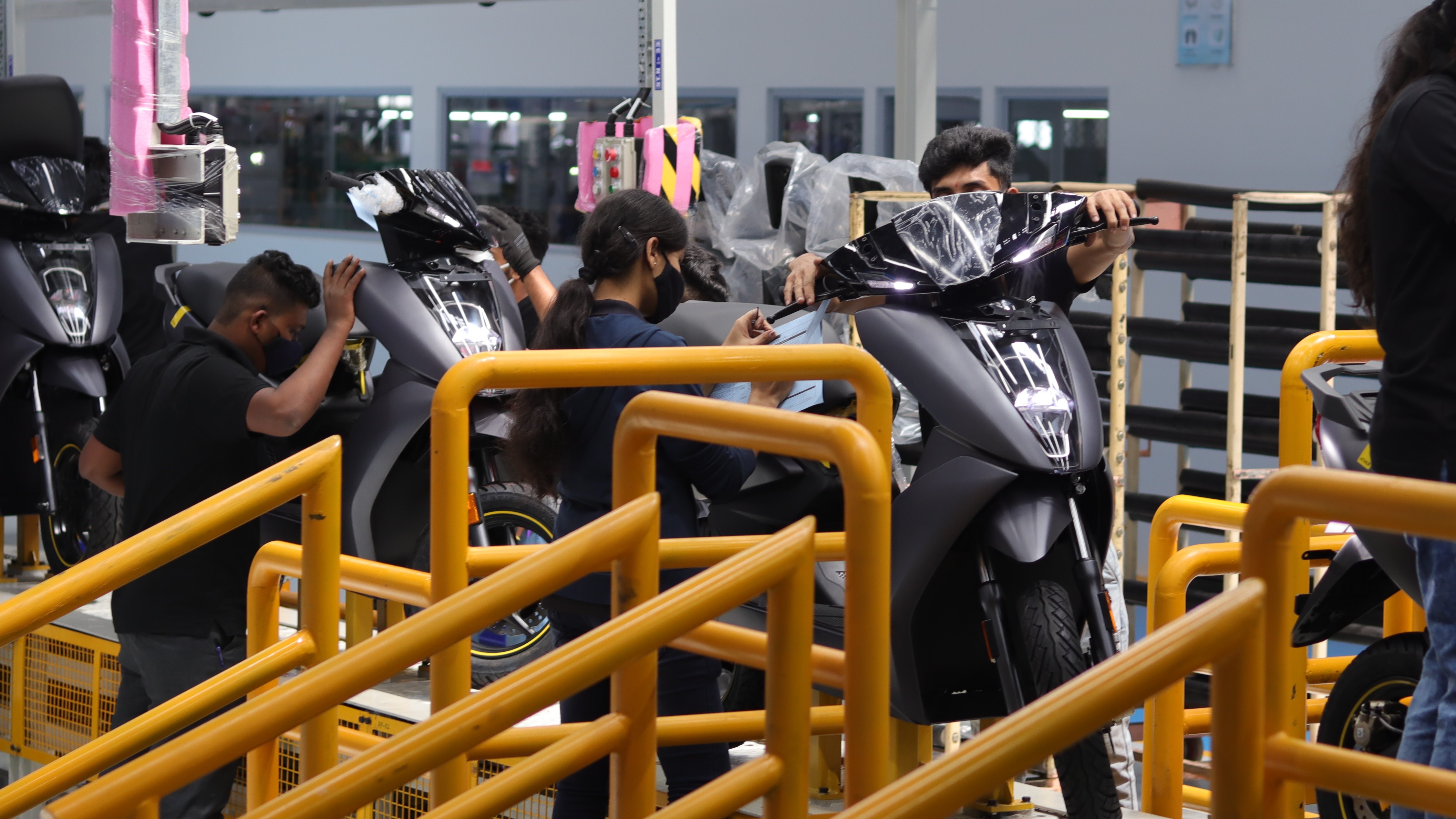
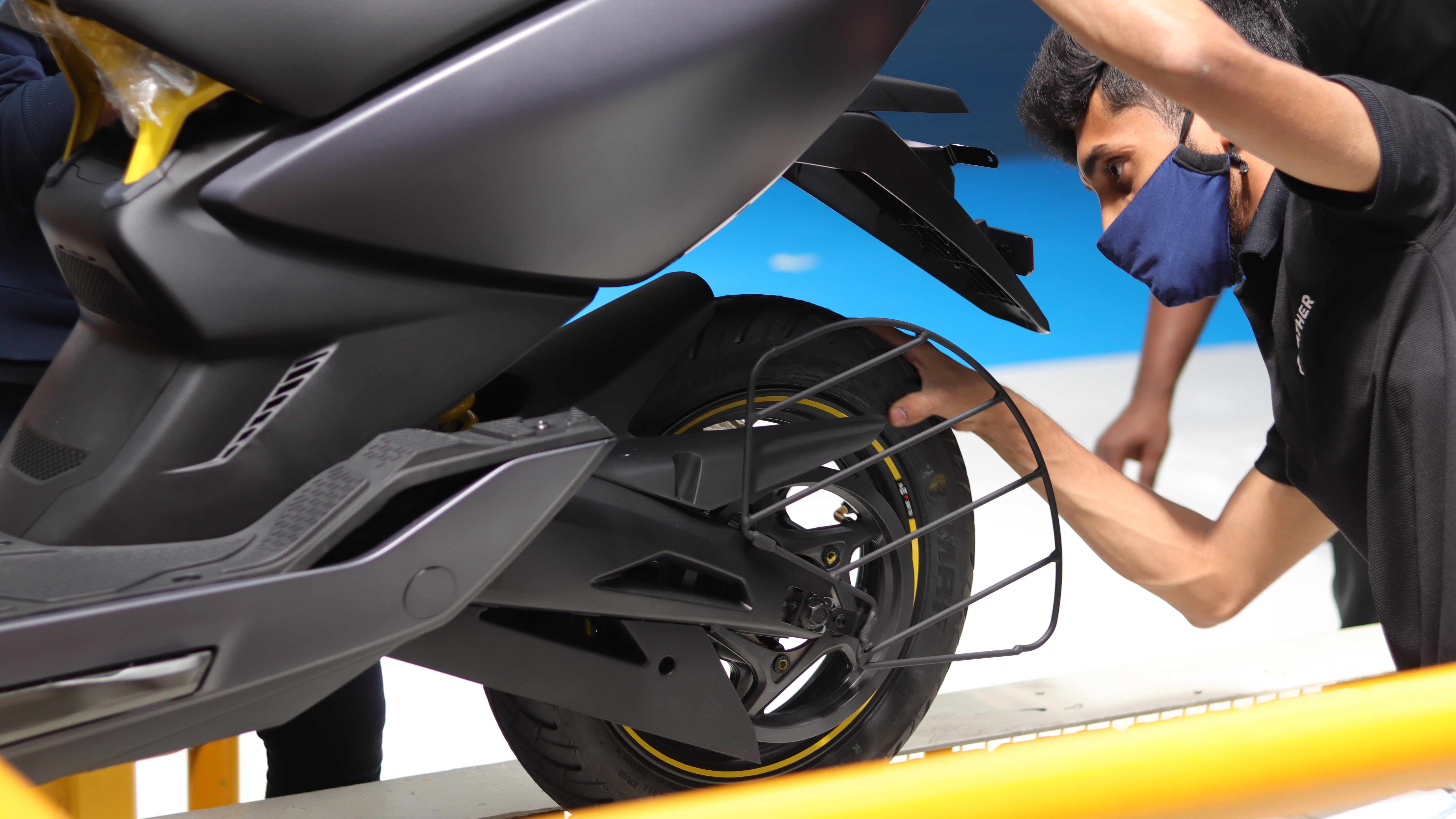
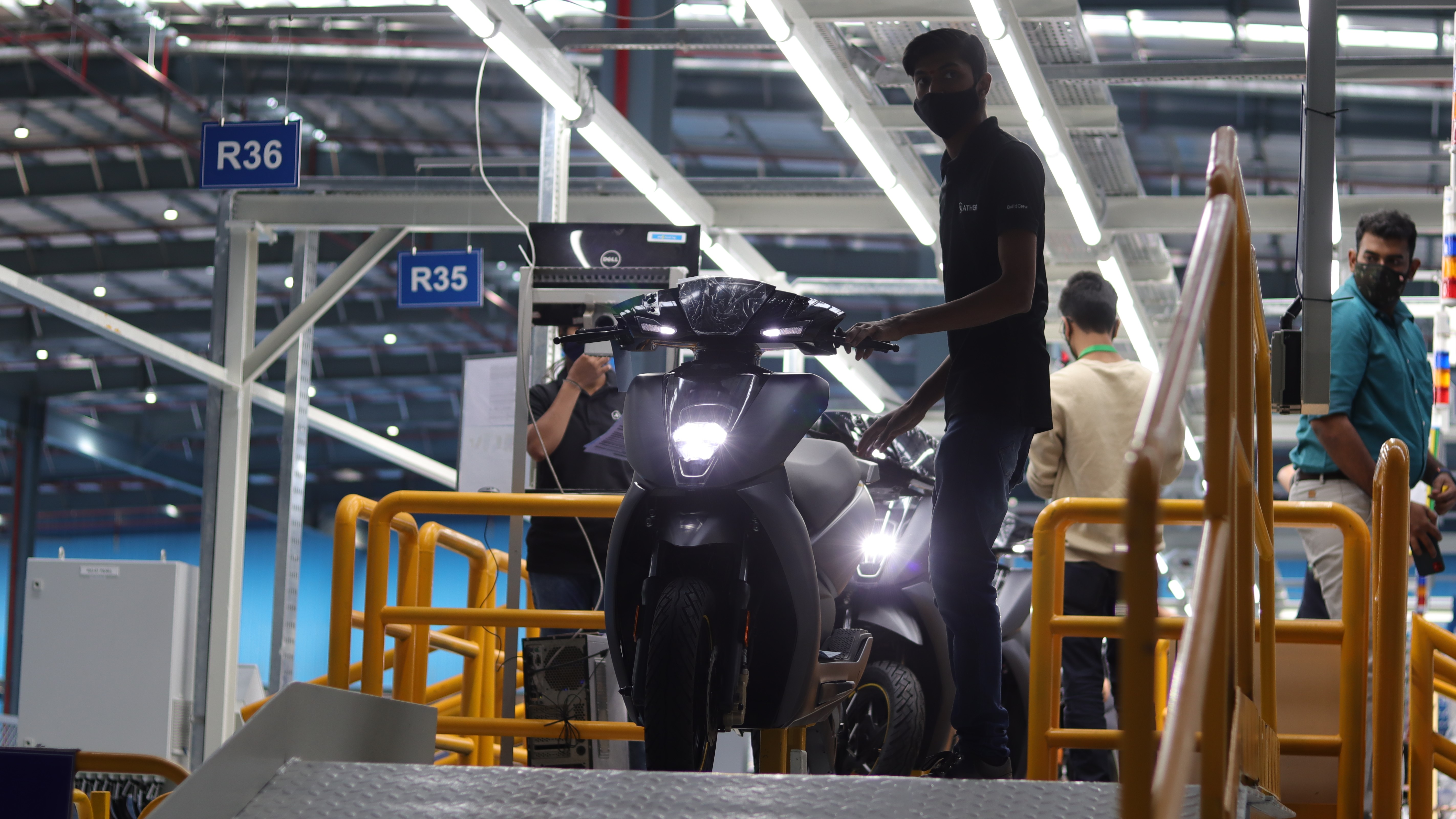
Perfecting the product
The company has been conservative in terms of growth and expansion, keeping the total production numbers under 10,000 units a year. The plan was to iron out any issues with the product and stabilize the process, before actually ramping up the numbers and reaching more users.
The idea seems to have paid off as Ather 450X is gathering some accolades along the way, including that of the quickest electric bike in India. It is being touted as the only two-wheeler with a unibody cast-iron chassis in the world and one that offers the best connectivity experience.
“Data is the centrepiece of every decision”, says Swapnil Jain, CTO of Ather Energy. They were already logging a lot of data from the design process and the vehicles on road. With the new factory, data around the manufacturing process will also be recorded.
As many as 13 machines, 50 manual stations and 500 other parameters now serve as sources of information, helping in future product development, expansion and software updates. For instance, the health of every single vehicle on the road can be simulated, creating a digital twin of sorts, and thus serviced better. Over time, the data will also be backwards integrated to help suppliers improve their operations.
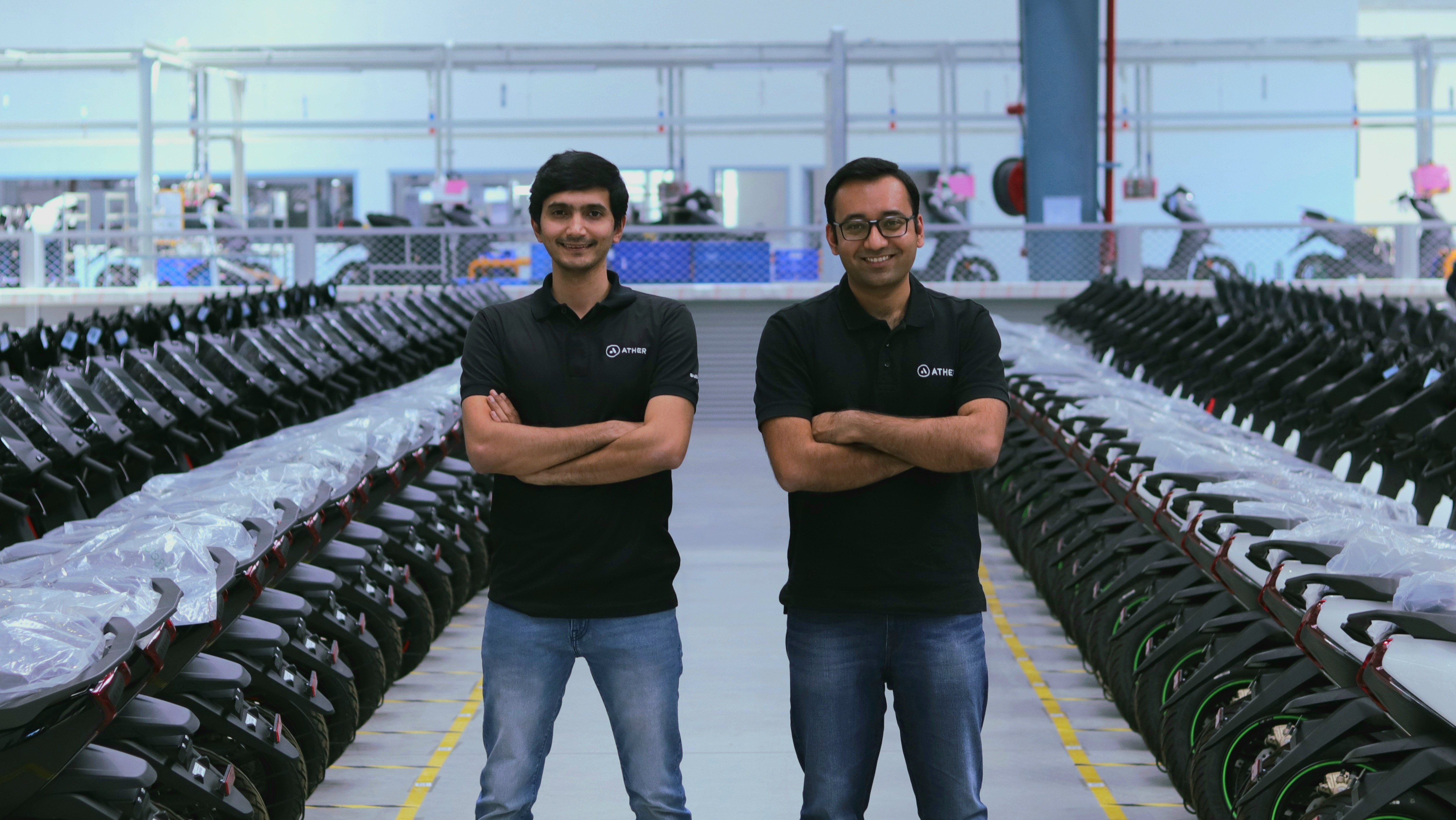
Just the beginning
You can not use a process that does not allow to scale up
Swapnil Jain
Ather Energy is the only EV OEM in India to make its own battery packs. With 13 patents on the design and manufacturing of li-ion batteries, Ather manages to offer higher energy density and faster charging using 21700-type cells in a 2.9 kWh pack than the competition. Working from a cell-level also has advantages such as significantly high efficiencies and better thermal management.
Speaking of charging, the Ather 450X uses 3rd generation batteries and its proprietary charging network to achieve an 80% charge in about 45 minutes -- which is faster than an iPhone. The Ather Grid network now spans over 100 locations across 12 Indian cities. Close to 400 fast charging stations will be up and running by the end of this year.
“It’s been a great journey for us so far and the opening of this facility is truly a milestone for Ather. The consumer demand has increased by multiple folds and with us expanding to new markets, this state-of-the-art facility will cater to demand across the country”, added Tarun.
Ather Energy is on path to be one of the biggest electric vehicle companies in India. It will face stiff competition from established players such as Bajaj, TVS and Ola along with the other startups that are popping up. Though, that isn’t necessarily a bad thing: as the competition increases, so do the suppliers, segment awareness and infrastructure. It’s too early to tell which direction the market will head, premium connected vehicles or simpler cheaper alternatives.
Aakash is the engine that keeps TechRadar India running, using his experience and ideas to help consumers get to the right products via reviews, buying guides and explainers. Apart from phones, computers and cameras, he is obsessed with electric vehicles.

